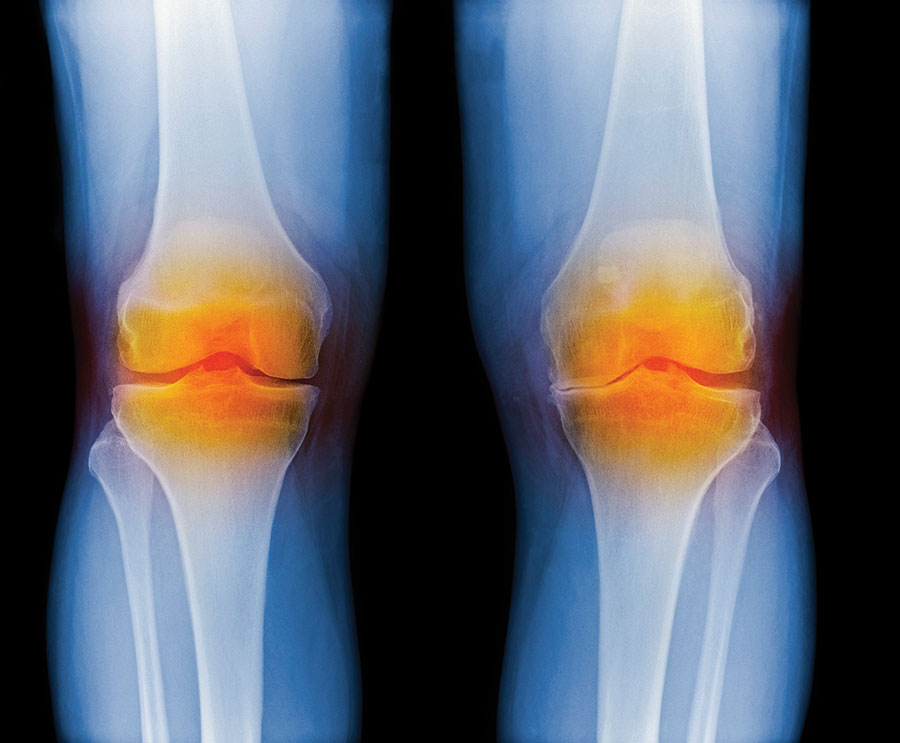Body, Mind & Spirit: Help for Knee Osteoarthritis, Berries for the Brain and the Burden of Loneliness

Blueberries have long been considered a superfood, but if you want to refine your diet for maximum brain health, go wild. Photo: Fertnig/Getty Images
From hyaluronic acid injections for your knees to adding wild blueberries to your diet, we look at ways to ease the pain of arthritis and boost your brainpower, plus a new study on the burdens faced by family caregivers.
Weak at the Knees
The jury has been out on whether steroid injections help or hinder knee osteoarthritis, a degenerative joint disease that causes pain, swelling and immobility, most often in older adults. Now, two November 2022 studies from American researchers conclude the treatment, which has been used for 50 years to reduce pain and inflammation, is associated with disease progression.
Both used subjects enrolled in the Osteoarthritis Initiative, a 14-year-old longitudinal study of knee arthritis supported by the U.S. National Institutes of Health. One, from the University of California, San Francisco, used MRIs taken at the time of injection and two years later, which revealed changes in the meniscus and cartilage. In a study from Chicago’s Rosalind Franklin University of Medicine and Science, X-rays taken at the time of injection and two years later showed narrowing of the space between the joints, a hallmark of osteoarthritis.

The good news is that hyaluronic acid injections, used to relieve pain, strengthen cartilage and thicken the fluid between joints, may be associated with decreased disease progression. So, before you pump up your knees, consider these acid tests.
—Kim Honey
Berry Berry Good
Blueberries have long been considered a superfood, but if you want to refine your diet for maximum brain health, go wild. In a six-month study from the University of North Carolina, 86 older adults (65 to 80) with self-reported cognitive issues were randomly assigned either a wild blueberry powder or a placebo powder. (Another 45 older adults without cognitive decline were included as a reference group.)
The results? The daily diet of wild blueberry increased processing speed, the basis for all brain functions, allowing subjects to complete mental tasks faster and stave off mental fatigue, particularly in 75- to 80-year-olds. You can thank the diverse phytochemical profile of the wild blueberry, particularly polyphenols like flavonoids, which defend the plant from environmental stress, fungi, bacteria and viruses.
Unlike cultivated blueberries, only Mother Nature grows the tinier wild version, which thrives in harsh environments like the Canadian Shield in Ontario and all over Atlantic Canada in former glacial-type soils. A staple of Indigenous diets, wild blueberries have been around for about
10,000 years.
Good whether fresh or frozen, you could try for half a cup to a whole cup a day – on cereal, in smoothies or salads. Yes, they come in powder form, too. But where’s the delicious fun in that?
—Susan Grimbly
In Isolation
Older adults are called upon, or feel a calling, to provide informal, unpaid work, from babysitting grandchildren to volunteering for charities. A recent meta-analysis of 28 peer-reviewed studies, involving more than 190,000 people aged 50 and up from 21 countries, shows these two examples of volunteerism help combat loneliness, while those who care for an ill spouse or partner – particularly if they have dementia – feel an increasing sense of isolation.
At a time when the population is aging, the social and psychological implications of loneliness in seniors is even more important, according to the research from King’s College London.
“Common risk factors for experiencing a caregiving burden include being a woman, co-residence with the care recipient, higher caregiving intensity, financial insecurity, and lack of choice of being a caregiver,” the authors write in the online journal Aging & Mental Health.
The analysis had limitations that meant the scientists could not draw any causal inferences – for example, the studies they consulted were conducted before COVID and had too wide an age range to allow a meaningful comparison between middle-aged and older adults.
“Assessing both loneliness and unpaid productive activities longitudinally [the same data collected across time] would allow future studies to determine the optimal timing of a potential intervention, ideally before loneliness becomes a chronic condition,” they conclude.
—Kim Honey
A version this article appeared in the February/March 2023 issue with the headline ‘Weak at the Knees’, p. 20, and ‘In Isolation’, p.24